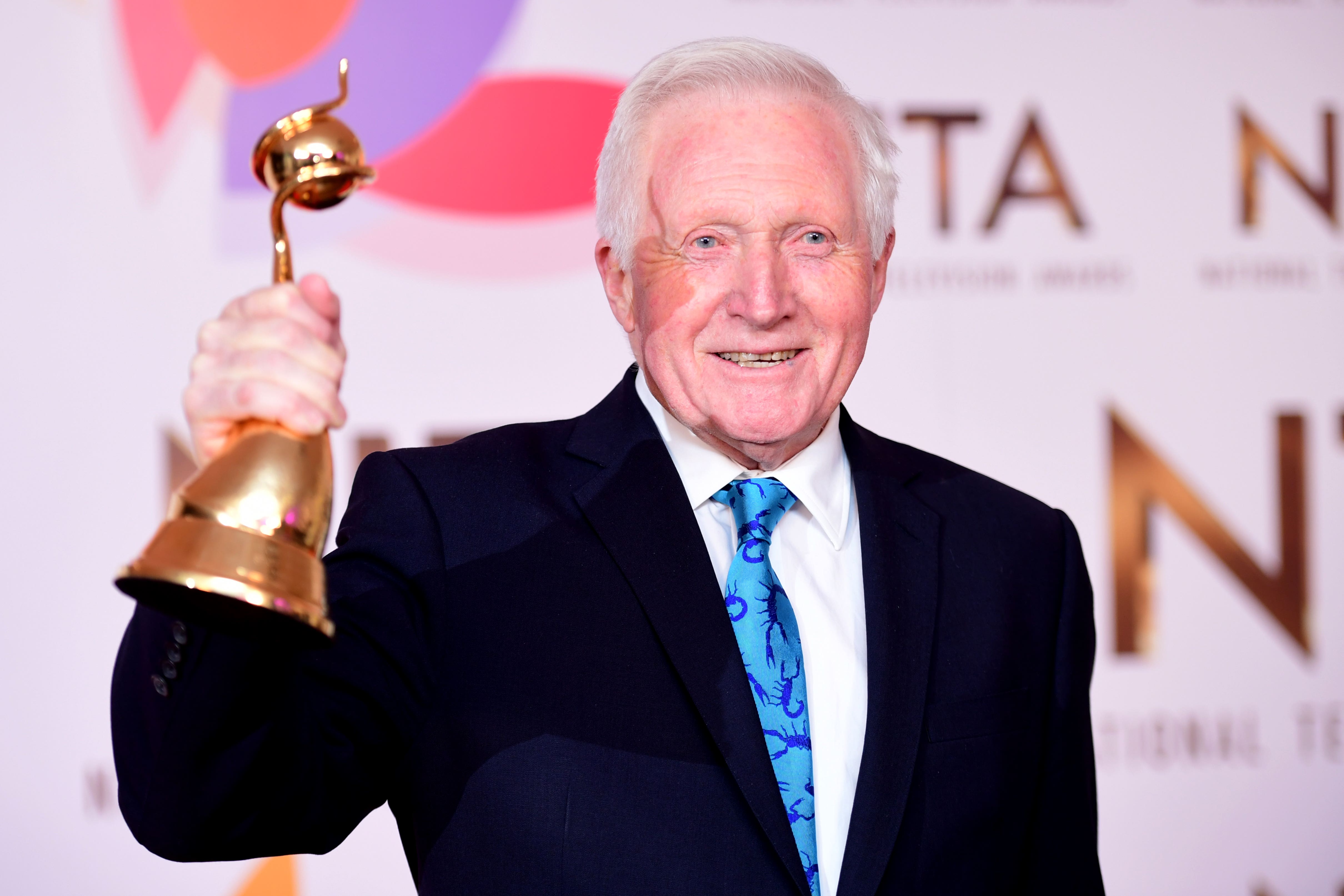David Dimbleby says BBC ‘absolutely vital’ in today’s landscape
The 83-year-old said the broadcaster should look forwards, not back, on its 100th anniversary.

Veteran broadcaster David Dimbleby has said the BBC plays an “absolutely vital” role in today’s society, as the corporation marks its centenary.
The former Question Time host, 83, suggested the BBC remained as close to an “objective truth teller” as is possible in the current media landscape.
Dimbleby first reported for the BBC in the 1960s and has played a central role in its political coverage since, most recently returning to commentate the Queen’s committal at Windsor Castle.
He said: “The BBC is the one organisation that can be relied on not to have a political agenda.
“The BBC’s only agenda is to try to get to the truth of things.
“It doesn’t have a political slant, it doesn’t have particular views it wants to get across.
“It is as near as we can get to an objective truth teller.
“And I think, in a world where there is a cacophony of voices and a cacophony of different prejudices and opinions and distortions prevailing, it’s absolutely vital to have something where, whatever its faults, its intention is to strive to tell the objective truth.”
The past is very interesting but it is gone. It’s what it teaches us for the future that matters
Tuesday marks 100 years since the British Broadcasting Company was officially formed.
Dimbleby said it should not reflect too much on its history and instead look forwards.
He added: “Milestones are obviously a cause for celebration but actually, when you hit 100 years, what you should be looking at is the next 100 years.
“The past is very interesting but it is gone. It’s what it teaches us for the future that matters.”
To mark the centenary, Dimbleby has fronted a three-part series, Days That Shook The BBC, highlighting the lowest moments in its history and how the broadcaster responded.
He said he expected the BBC to “heap praise upon itself” during the centenary celebrations and instead of “just joining in with the eulogies of praise” he wanted to look at how it had responded when things went wrong.
“I also wanted to examine whether the BBC has been fairly or unfairly treated in the past, by politicians and by other pressure groups,” he added.
“Finally, I wanted to examine the BBC’s relationship with people across the country, given that it is paid for by everybody.
“I wanted to ask whether the BBC has got the relationship with its audience right.”
Dimbleby retired from Question Time in 2018, handing the reins to Fiona Bruce.
Since then he has helped produce a number of BBC programmes before his involvement in the Queen’s state funeral – following in the footsteps of his broadcaster father Richard Dimbleby.
Bookmark popover
Removed from bookmarks